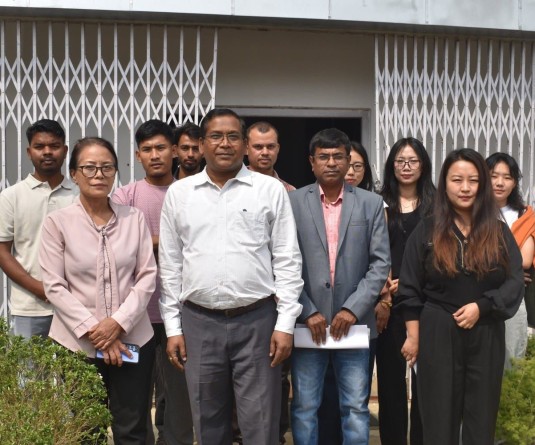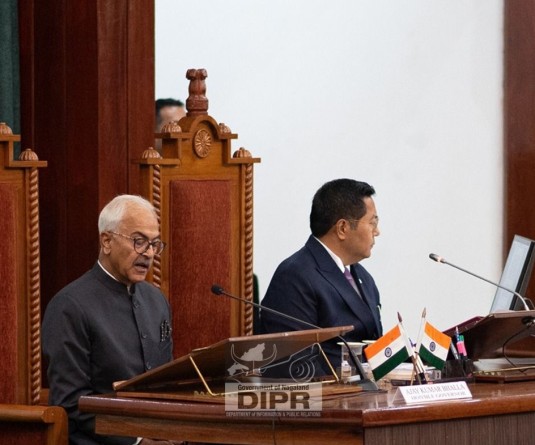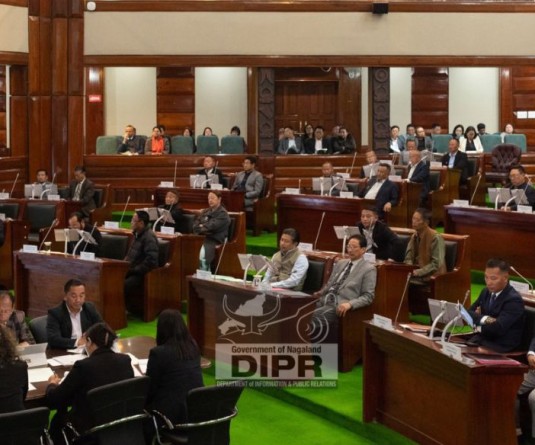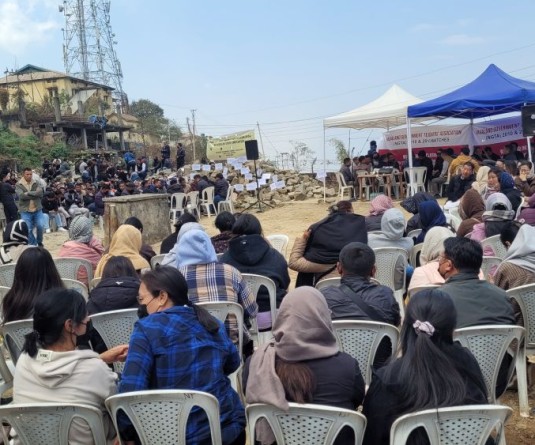‘SARFAESI Act 2002 cannot be implemented in its present form’
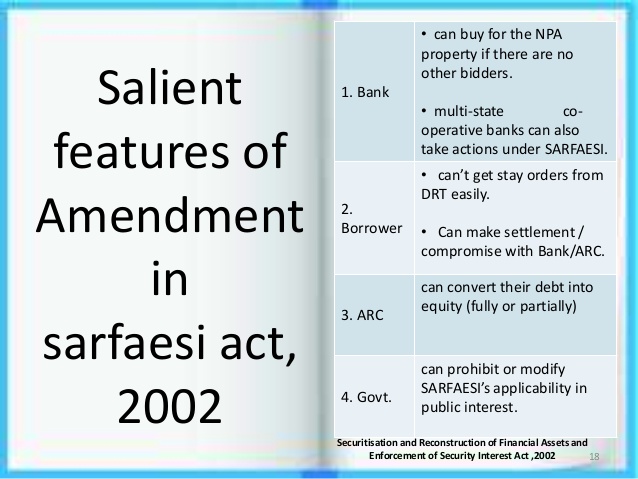
Kohima, February 13 (MExN): Chief Minister Neiphiu Rio today said that SARFAESI Act 2002 cannot be implemented in Nagaland in its present form at the 5th session of the 13th Nagaland Legislative Assembly (NLA).
Rio, clarifying on various issues relating to the SARFAESI Act, 2002 on the floor of the house, said that SARFAESI Act 2002 cannot be implemented in the State in its present form since it comes in direct conflict with the land holding systems and restrictions on transfer of land as in Article 371A - Special provisions on transfer of land and its resources, the Nagaland Land & Revenue Regulation (Amendment) Act 1978, Land & Revenue Regulation (Amendment) Act 2002.
The Justice & Law Department had on July 19, 2019 to Finance Department clearly stated that SARFAESI Act 2002 cannot be enforced as the provisions are conflicting with all existing protective laws (Article 371A/ BEFR 1873 and the Nagaland Land & Revenue Regulation (Amendment) Act 1978), the Chief Minister stated.
He further clarified that on October 18, 2019, the Cabinet examined the SARFAESI Act 2002 and decided that the Act can be adopted in the State, “only after it is ensured that transfer of property attached by banks is made to indigenous inhabitants of the State.”
Being a Central Act, the requisite amendment has to be carried out by the Central Government. Therefore, Rio said the State Finance Department on November 22, 2019 requested the Department of Financial Services of the Government of India to modify the Act to restrict the transfer of property to indigenous inhabitants of Nagaland “for which reply is still awaited.”
Rio further said that banks have been requesting for implementation of the Act in Nagaland so that they can advance loans to customers against mortgage of immovable property/fixed assets in favor of the banks and case of default in repayment by the borrower, the Act will enable banks to confiscate and sell the property without intervention of Courts to realize their money.
Rio added that while the interest of the banks must be safeguarded, “we cannot dilute the existing provisions and permits banks to sell mortgaged immovable property to outsiders.”
Rio asserted the “assumption that Nagas are unable to avail loans from banks due to non-adoption of SARFAESI Act 2002 is misleading and erroneous as banks have adequate safeguards under existing laws (Nagaland Land and Revenue Regulation (Amendment) Act, 2002) in Nagaland to take possession of secured assets and sell them to realize their dues.”
Also citing example of Tripura, Rio said that the Supreme Court of India had heard an appeal filed by the UCO Bank over a matter pertaining to recovery of dues in the State of Tripura.
The appeal was made challenging Section 187 of the Tripura Act of 1960 that prohibited the sale of mortgaged properties by the bank to any person who is not a member of a scheduled tribe.
The Supreme Court in its judgment dated November 25, 2016 held that the Act was enacted under List I of the Seventh Schedule in which the authority is vested with the Union Government.
Rio clarified that Nagaland have not enacted any legislation like Tripura, but intend to adopt the Act enacted by the Central Government and intend to ensure that as in the case of Tripura, “transfer of mortgaged property takes place only to indigenous Naga inhabitants of Nagaland.”
He said that a request has been sent for incorporation of this provision in the Central Act “specifically for Nagaland with a view to ensure compliance with Article 371A of the Constitution and clear the way for implementation of this Act in Nagaland.”
Rio commented that the State Government passed the Nagaland Special Economic Zone Bill 2009 to promote economic growth and development, seeing the difficulties entrepreneurs faced in getting access to institutional credit for economic growth.
He therefore, said that the main objective was to create “Economic Zones to attract investment as well as facilitate access of our entrepreneurs to institutional credit at affordable rates of interest and make all possible efforts to facilitate mortgage of land and fixed assets in these zones against which loans can be accessed.”


